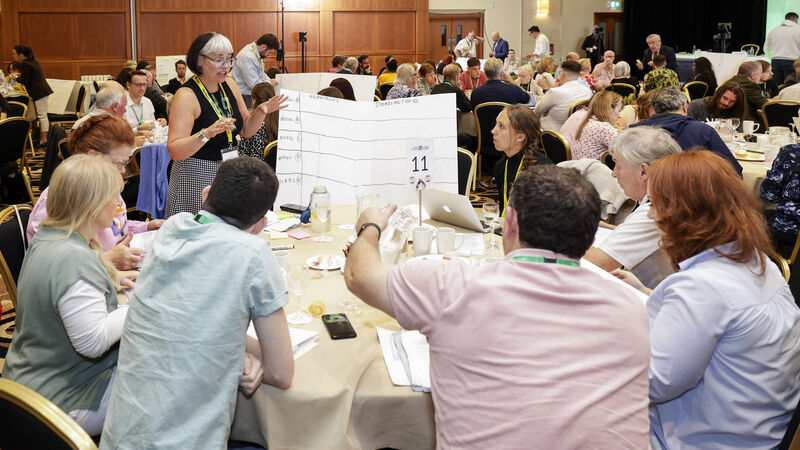Citizens' Assembly hears health ministry leadership ‘key’ to Portuguese drugs model

Members of the Citizens’ Assembly on Drugs Use taking part in facilitated workshops on the final day of its fourth meeting. Picture: Maxwell’s
The system in Portugal — where those caught by police with drugs are referred into a health system — has been to the forefront among possible alternatives that Ireland could follow and has been recommended by the Oireachtas justice committee.










